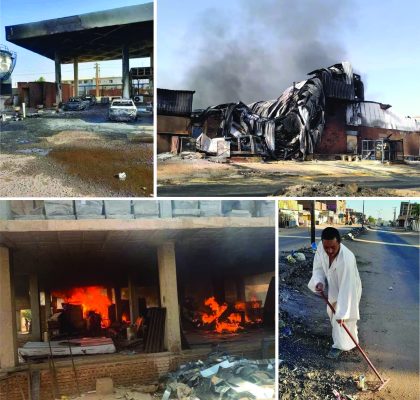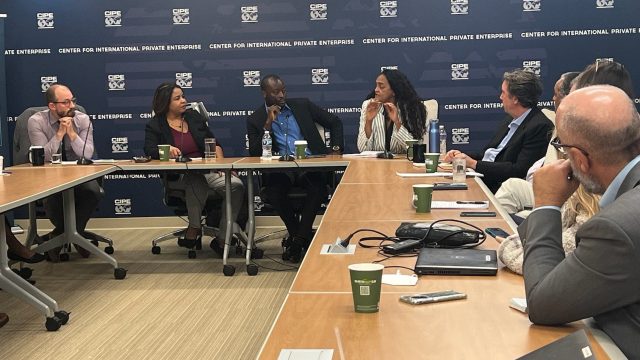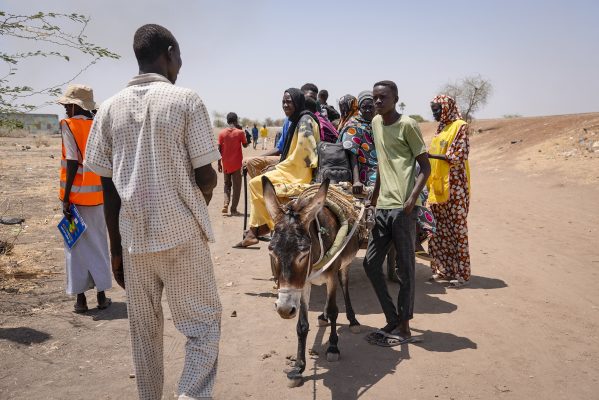Sudan Experts Call for Anti-Corruption, Inclusion, and Private Sector Leadership
On the six-month anniversary of the latest outbreak of war in Sudan, a panel of experts gathered at CIPE’s Washington headquarters to discuss the causes, the destruction, and the diminishing ability of the country’s government and businesses to function.

CIPE Program Director Ryan Musser posed the day’s first question to panelist Mutasim Ali, legal counsel at the Raoul Wallenberg Center for Human Rights: what should we consider the root of the problem? Ali tabbed cultural differences as a core cause, and the failure to include all voices in the governing process. “Peace is not a mere document you sign between the warring parties,’’ he said. “It should be felt by the victims of the war.”
A core reason that Sudanese peace agreements fail is the systemic exclusion of women’s interests in decision-making.
Ali described the harmful effects of the region’s history of exclusion based on ethnic and religious divides, and fellow panelist Manal Taha expanded the conversation with another example: the consequences of excluding women. A core reason that Sudanese peace agreements fail – 70 of them since 2000, addressing regional, national and subnational fighting – is the systemic exclusion of women’s interests in decision making.

Ali described the harmful effects of the region’s history of exclusion based on ethnic and religious divides, and fellow panelist Manal Taha expanded the conversation with another example: the consequences of excluding women. A core reason that Sudanese peace agreements fail is the systemic exclusion of women’s interests in decision making – at the negotiating table as well as in politics in general. Women’s participation as negotiators, mediators and signatories boosts the chances of peace lasting at least 2 years by 20 percent, according to the International Peace Institute. “We have peace agreements every couple of years, and then we have war,” said Taha, a conflict analyst for the U.S. Institute of Peace. “Protection is important to stop the atrocities.
Sudan is Africa’s third-largest gold producer, and an estimated 70 percent of revenue is currently smuggled away.
Several audience members asked about corruption’s role in the conflict. The problem is multifaceted, CIPE’s Sudan Country Director Shaza Elmahdi said, but starts at a systemic level. After the 2021 coup d’etat, for example, military leaders reversed anti-corruption reforms. Transnational corruption is on the rise as well, as foreign entities infiltrate Sudan for their own illicit purposes. Sudan is Africa’s third-largest gold producer, and an estimated 70 percent of revenue is currently smuggled away. She added that kleptocratic networks are undermining the peace process in a competition between the two sides to control economic resources.
“I see a reset point in the history of Sudan because of this war. The private sector is going to be crucial.”

To respond to these challenges, CIPE and its Sudan Anti-Corruption Resource Center (SARC) partners are increasing outreach to their private-sector networks of businesses that can act as subcontractors to humanitarian aid groups and also participate in peace negotiations. Outreach includes training and resources on anti-corruption measures that can help ensure aid gets to the people who really need it. Efforts include workshops and other activities to help local businesses meet governance and transparency standards required by credible international organizations.
“I see a reset point in the history of Sudan because of this war,” said Elmahdi. “The private sector is going to be crucial.”
Published Date: October 16, 2023